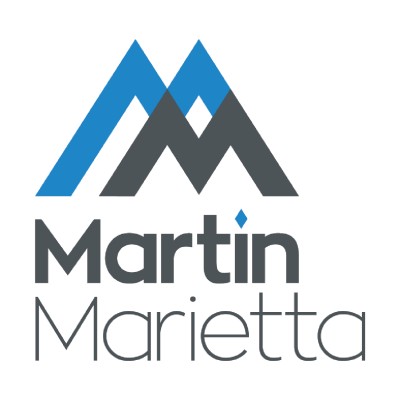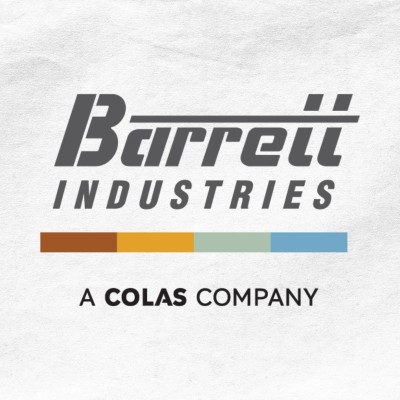Loader Operator
About This Job
Job Summary
Load and unload pipe, plate, tanks, posts and other materials from railcars, or trucks, using material moving equipment. May perform a variety of other tasks relating to production and shipment of products.
Work Context
•
Communication – Interact with professionalism with coworkers and leaders
•
Role Relationships – use the chain of command
•
Responsibility for Others -Be responsible for safety of self and of coworker.
•
Work Setting – Industrial shop setting, in a non-temperature-controlled environment
•
Work Attire – Composite toe or steel toed boots
•
Pace and Scheduling – Fast paced, production goals to be met daily
Primary Job Duties
•
Verify rail car or truck load numbers to ensure car placement accuracy based on written or verbal instructions.
•
Observe positions of cars passing loading forks, and swing forks into the correct positions at the appropriate times.
•
Operate loading and unloading equipment, conveyors, hoists, and other specialized material handling equipment such as railroad car unloading equipment.
•
Monitor product movement to and from load position, coordinating activities with other workers to ensure constant product flow.
•
Check conditions and weights of trucks and trailers to ensure safety and compliance with loading procedures.
•
Operate industrial trucks, tractors, loaders, and other equipment to transport materials to and from transportation vehicles and loading docks, and to store and retrieve materials in warehouses.
Education and Requirements
High School Diploma - or the equivalent (for example, GED)
Knowledge
Transportation - Knowledge of principles and methods for materials by truck or railcar.
Public Safety and Security - Knowledge of relevant equipment, policies, procedures, and strategies to promote effective local, state, or national security operations for the protection of people, data, property, and institutions.
Skills
•
Basic Skills Active Learning- Understanding the implications of new information for both current and future problem-solving and decision-making.
•
Active Listening- Giving full attention to what other people are saying, taking time to understand the points being made, asking questions as appropriate, and not interrupting at inappropriate times.
•
Critical Thinking- Using logic and reasoning to identify the strengths and weaknesses of alternative solutions, conclusions or approaches to problems.
•
Learning Strategies- Selecting and using training/instructional methods and procedures appropriate for the situation when learning or teaching new things.
•
Mathematics- Using mathematics to solve problems.
•
Monitoring- Monitoring/Assessing performance of yourself, other individuals, or organizations to make improvements or take corrective action.
•
Reading Comprehension- Understanding written sentences and paragraphs in work related documents.
•
Science- Using scientific rules and methods to solve problems.
•
Speaking- Talking to others to convey information effectively.
•
Writing- Communicating effectively in writing as appropriate for the needs of the audience.
Social Skills
•
Coordination- Adjusting actions in relation to others' actions.
•
Negotiation- Bringing others together and trying to reconcile differences.
•
Service Orientation- Actively looking for ways to help people.
•
Social Perceptiveness- Being aware of others' reactions and understanding why they react as they do.
Technical Skills
•
Equipment Maintenance- Performing routine maintenance on equipment and determining when and what kind of maintenance is needed.
•
Equipment Selection- Determining the kind of tools and equipment needed to do a job.
•
Operation Monitoring- Watching gauges, dials, or other indicators to make sure a machine is working properly.
•
Operations Analysis- Analyzing needs and product requirements to create a a
•
Troubleshooting- Determining causes of operating errors and deciding what to do about it.
Systems Skills
•
Judgment and Decision Making- Considering the relative costs and benefits of potential actions to choose the most appropriate one.
•
Systems Analysis- Determining how a system should work and how changes in conditions, operations, and the environment will affect outcomes.
•
Systems Evaluation- Identifying measures or indicators of system performance and the actions needed to improve or correct performance, relative to the goals of the system.
Resource Management Skills
•
Management of Financial Resources- Determining how money will be spent to get the work done, and accounting for these expenditures.
•
Management of Material Resources- Obtaining and seeing to the appropriate use of equipment, facilities, and materials needed to do certain work.
•
Time Management- Managing one's own time and accounting for it.
Similar Jobs

Loader Operator
Berger
Hadashville, MB
1 day ago

Loader Operator
Lhoist
Calera, AL
2 days ago

Loader Operator
Martin Marietta
Trenton, SC
2 days ago

Loader Operator
North American Construction Group
Fort McMurray, AB
3 days ago

Loader Operator
Drax Group
Williams Lake, BC
6 days ago

Loader Operator
Drax
Williams Lake, BC
6 days ago
OS
Loader Operator
ops sales company
Dewey, OK
6 days ago

Loader Operator
E.R. Jahna Industries, Inc.
Clermont, FL
8 days ago

Loader Operator
Mid Michigan Materials
Oxford, MI
8 days ago
TA
Loader Operator
The Allen Company, Inc
Nicholasville, KY
10 days ago

Loader Operator
Jr. Davis Construction Company, Inc.
Kissimmee, FL
13 days ago

Loader Operator
The Contractor Consultants
Deerfield Beach, FL
14 days ago

Loader Operator
Barrett Industries
Saranac Lake, NY
14 days ago
MP
Loader Operator
Magnus Products, LLC
$49920 - $56160
Braddock, PA
16 days ago

Loader Operator
BURNCO Rock Products Ltd
Greeley, CO
17 days ago
Loader Operator
Pauls Auto Yard
$31200 - $37440
Merrillville, IN
17 days ago

Loader Operator
L.G. Everist
Sioux Falls, SD
17 days ago

Loader Operator
Croell Inc.
$58240 - $66560
Douglas, WY
18 days ago

Loader Operator
Croell Inc.
$54080 - $66560
Gillette, WY
18 days ago

Loader Operator
Croell Inc.
$58240 - $66560
Sheridan, WY
18 days ago
Trending Jobs
Assistant General Manager, Navy Yard Electric Utility
$108000 - $108000
Philadelphia, Pennsylvania
22 days ago

Electrical Engineer
Dudley Staffing
$55 - $75
Canonsburg, Pennsylvania
4 months ago
Division Order Analyst
Dallas, Texas
14 days ago
Accounts Payable Clerk
$65000 - $65000
Dallas, Texas
24 days ago
DM
Apprentice Lineman
Delta Montrose Electric Association
Montrose, CO
27 days ago

contract landman
HPS Oil & Gas Properties
Lafayette, Louisiana
3 months ago

Attorney
Toeppich & Associates
Houston, Texas
about 1 year ago

Oil and Gas Land and Title Analyst - SAM Associate II
Bank of America
Dallas, Texas
about 1 month ago

Senior Landman
Greenlake Energy
Austin, Texas
about 1 month ago

Foundry Professionals
Penticton Foundry
British Columbia, Canada
15 days ago
Apprentice Lineman
Southern Pine Electric
Brandon, MS
28 days ago

Electrical Designer
Dudley Staffing
$45 - $60
Canonsburg, Pennsylvania
4 months ago
Contracts Administrator
Third Coast
$70000 - $85000
Houston, Texas
28 days ago

Title Landman
Sustain Land Services
Norman, Oklahoma
2 months ago

Deckhand
Ballard Marine Construction
Bradenton, FL
17 days ago
Apprentice Lineman
N Line Electric
$68640 - $106080
Longmont, CO
10 days ago
PS
Screen Printing Operator
Providence screen printing
$39520 - $41600
East Providence, RI
22 days ago
Manufacturing Technician Core Finishing 2nd Shift
Siemens Energy
Gibsonton, FL
23 days ago

Apprentice / Lineman
Saber Power Services
Rosharon, TX
20 days ago

Lease Records Administrator
WEM Operating
Provo, Utah
about 2 months ago